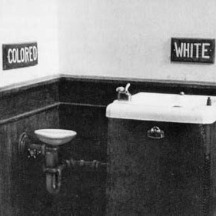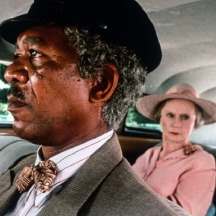ABC’s recent foray into punishing Whoopi Goldberg reminded me of a night when I was about 17 and voluntarily sitting in the back of a bus with some fellow Junior Achievers - - all Black, except for two “cool” White girls. One of the White ladies was named Lori.
Lori and the other non-Black lady started chatting about what would happen if her mother found out that her boyfriend was Croatian and not Serbian, as they were - - or was it the other way around? Nevertheless, they agreed that the mother would have a fit.
All of our ears perked up. However, my friend Ronnie, who was Black, perked up and blurted: “Who cares, they are both White!”
Lori may thought we should have known, but we did not know the difference between a Croat and a Serb.
We did not shame Ronnie, but learned that these two White people saw the world differently than the Blacks on the bus. It was a learning moment. We talked. We laughed.
Lori may thought we should have known, but we did not know the difference between a Croat and a Serb. What mattered was our experience. When we moved into the neighborhoods of Gary that they occupied – Croats AND Serbs FLED.
Suspending either would not have increased our common knowledge. Sharing information did.
Some like Lee Tucker of New York think that Goldberg’s suspension may have a chilling effect on The View’s discussion. He wrote on Facebook, “they can talk about everything and everybody else except Jews.” With her posting of a news story “Anti-Defamation League CEO Jonathan Greenblatt told the show to fill its co-hosting vacancy with a Jewish person,” Helen Higginbotham responded, “When there is nothing nice to say, say nothing.”
Yet, ABC News reports America had an insurrection and Guinea-Bissau, on the homeland, had a failed coup.
Nevertheless, we also know that the sharing of information is no panacea and unnecessary tension can prevail. After all the revelations,
only 51 percent of Americans believe that an attempted coup took place on January 6, 2021 – probably even fewer believe it was a failed White Nationalist coup.
Yet,
ABC News reports America had an insurrection and Guinea-Bissau, on the homeland, had a failed coup. The Republican National Committee even said those involved in the American failed White nationalist coup were involved in a "
legitimate political discourse." Yet, unlike Goldberg’s boss, Kim Goodwin, we are not shutting these voices down.
Here are some images, articles, thoughts, videos, and thoughts other readers shared with us by email and on Facebook that provides fodder for a deeper conversation that ABC chose turn off.
Hitler’s Definition of Whiteness vs.
Current US Definitions
In the late nineteenth and early twentieth century, some scholars and others transformed the Aryans into a mythical “race” that they claimed was superior to other races. In Germany, the Nazis promoted this false notion that glorified the German people as members of the "Aryan race," while denigrating Jews, Black people, and Roma and Sinti (Gypsies) as “non-Aryans.”
The word Aryan is an example of how words and concepts develop over time. In the European and American context, the term Aryan started as a scholarly concept used to describe an ancient people who spoke related languages. With time, however, Aryan referred to a racial category. The Nazi regime adopted this as a core concept in their racist ideology.
Read More
The United States Office of Management and Budget (OMB) minimum categories for race are: American Indian or Alaska Native, Asian, Black or African American, Native Hawaiian or Other Pacific Islander, and White. The OMB minimum categories for ethnicity are: Hispanic or Latino and Not Hispanic or Latino.
Read More
Are Jews White?
From the earliest days of the American republic, Jews were technically considered White, at least in a legal sense. Under the Naturalization Act of 1790, they were considered among the “free White persons” who could become citizens. Later laws limited the number of immigrants from certain countries, restrictions which were in part targeted at Jews. But unlike Asian and African immigrants in the late 19th century, Jews retained a claim to being “Caucasian,” meaning they could win full citizenship status based on their putative race.
Culturally, though, the racial status of Jews was much more ambiguous. Especially during the peak of Jewish immigration from Eastern Europe in the late 19th and early 20th centuries, many Jews lived in tightly knit urban communities that were distinctly marked as separate from other American cultures: They spoke Yiddish, they published their own newspapers, they followed their own schedule of holidays and celebrations. Those boundaries were further enforced by widespread anti-Semitism: Jews were often excluded from taking certain jobs, joining certain clubs, or moving into certain neighborhoods. Insofar as “whiteness” represents acceptance in America’s dominant culture, Jews were not yet White.
Over time, though, they assimilated. Just like other White people, they fled to the suburbs. They took advantage of educational opportunities like the G.I. bill. They became middle class. “They thought they were becoming White,” says Lewis Gordon, a professor of philosophy at the University of Connecticut. “Many of them stopped speaking Yiddish. Many of them stopped going to synagogue. Many of them stopped wearing the accoutrements of Jewishness.”
Publisher’s Note: (Some think “Brown” Hispanics may follow this same path.)
Read More
Oscars Film Shows Nazi Rally at
Madison Square Garden
It's an unlikely Oscar contender. Marshall Curry's "A Night at the Garden" has been nominated for an Academy Award for Best Documentary Short. The film, entirely comprised of archival footage, shows a 1939 rally of American Nazis at New York City's Madison Square Garden. The rally drew 20,000 people on the eve of World War II. "The lesson of the film," Curry told InsideEdition.com, is that "we are vulnerable to leaders who will stir us up against each other."
See 4.5 minute Video
Our Pet Peeve:
Trump Tied Africans to Palestine/Israel Conflict – Disapproval Mounts
Taking Responsibility?:
American Holocaust: When It’s All Over I’ll Still Be Indian
On Film:
Driving Ms. Daisy - The film explores racism against Black people, which affects Hoke (Ms. Daisy’s driver) personally. The film also touches on anti-semitism in the South. After her synagogue is bombed, Miss Daisy realizes that she is also a victim of prejudice.
First look inside America's Black Holocaust Museum ahead of grand reopening in Milwaukee









